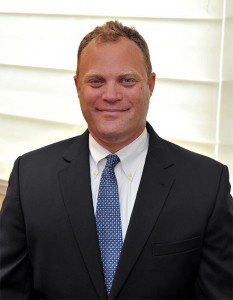 Progressive Voice is a weekly opinion column. The views and opinions expressed in the column are those of the individual authors and do not necessarily reflect the views of their organizations or ARLnow.com.
Progressive Voice is a weekly opinion column. The views and opinions expressed in the column are those of the individual authors and do not necessarily reflect the views of their organizations or ARLnow.com.
By Andrew Schneider
2016 is a year of elections – from the highest office in the land to positions as a Civic Association President in Arlington.
After serving six years as Yorktown Civic Association President, I look forward to the tenure of my elected successor.
Our civic association is located in North Arlington encompassing neighborhoods near Yorktown High School. Within its borders are more than 1,000 households. What did I learn during my tenure? The lessons ranged from the profound (people care!) to the exhausting (this is a lot of work!).
Above all, I learned that running anything is not that easy. Lining up volunteers, writing newsletters, generating community engagement, and scheduling meetings takes time, focus, and attention to detail. Yet, it does lead to interesting opportunities to make a difference — use permits, sidewalk projects, interacting with the County, etc.
I also learned that it’s worth it. The Civic Association provides a voice for County residents at the most fundamental level.
Right before I took office, we were dealing with a major issue in our neighborhood about a restaurant also serving as an after-hours nightclub. The neighborhood activated and the nightclub activity was curbed. Similarly, the Civic Association had been intimately involved in the reconstruction of Yorktown High School, Greenbriar Park, and additions to Marymount University.
Without the Civic Association involvement, basic civic input would have been muted and funneled through more bureaucratic channels.
More recently, Yorktown has been active in helping guide improvements to Chestnut Hills Park (Harrison Street Park), been a founding partner in the Lee Highway Alliance, opposed and worked (to no avail) to prevent the opening of TitleMax, and been engaged in the ongoing conversation about the future of Fire Station 8.
I learned that there are many dedicated County Employees. As President, I engaged with the full gamut of County employees, ranging from Code Enforcement, Law Enforcement, elected officials, and Parks and Recreation staff. Almost invariably, our County employees were responsive, collaborative and dedicated.
We didn’t always agree or get answers as quickly as we wanted, but I believe on the whole we are very well served by County government. One example is the County’s positive response to our efforts to improve conditions and code enforcement at the Garden City Shopping Center.
From that, I also learned that change is hard. My primary goal as President was to work with neighbors, business owners, landlords, and the County on the overall appearance and cleanliness of the Garden City Shopping Center. We have seen improvements. Several new businesses have moved in. But vacancies remain, trash is an ongoing issue, and the parking lot remains difficult to navigate.
Similarly, we have worked to improve sidewalks around Yorktown High School and make improvements to Chestnut Hills Park. Change is coming, but slowly. This is a price we pay for living in a deliberative and inclusive community in which all voices are heard and County staff resources are constrained.
Finally, I have learned there is more work to be done. The Lee Highway revitalization effort – citizen led and (usually) County supported – is moving ahead through amazing collaboration among various civic associations. The County’s Neighborhood College program provides resources and insights on neighborhood perspectives about change.
Yet, too often the burden of involvement is on the individual and neighborhood to seek out and advocate for change and create a voice for itself, rather than the neighborhood being engaged early on as collaborative partners with County government. From small ways (miscommunicated changes to roads and traffic lights) to large (parking issues around Yorktown High School and the future of Fire Station 8) earlier and clearer communication can avoid undermining of trust that curtails citizen engagement.
I believe the Arlington County Civic Federation can expand its vital role by identifying and communicating best practices, assisting Association Presidents and neighborhood leadership teams, serving as a convener.
All in all, serving as Civic Association President was an honor. Arlington is a small County that does many things well. In addition to the oft touted schools and great parks, Arlington listens to residents and creates models for active and meaningful engagement.
I am thankful to my fellow Executive Committee members, County staff who worked with us, and neighbors who gave us an opportunity to serve.
Andrew Schneider is a lifelong Arlingtonian who is the Executive Director of Arlington Thrive, a non-profit that provides same day emergency financial support to neighbors in need.

